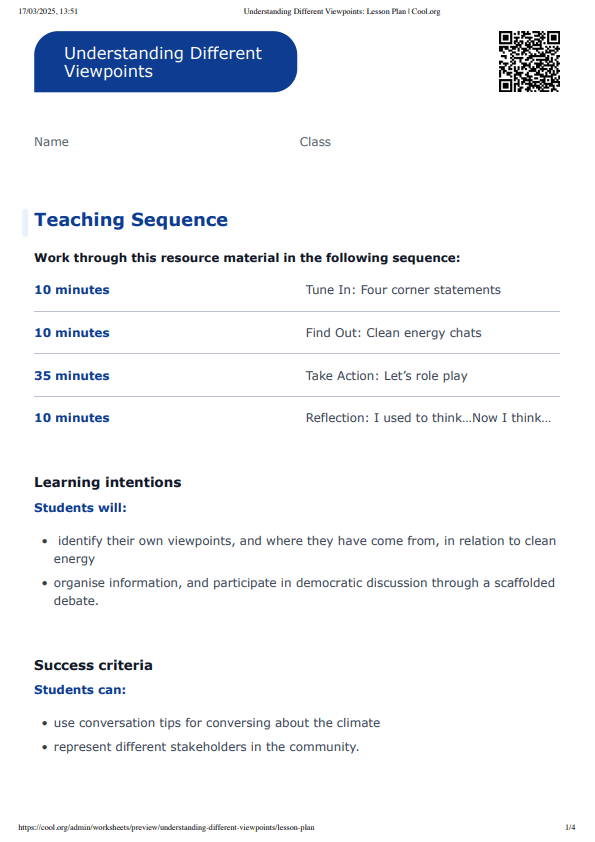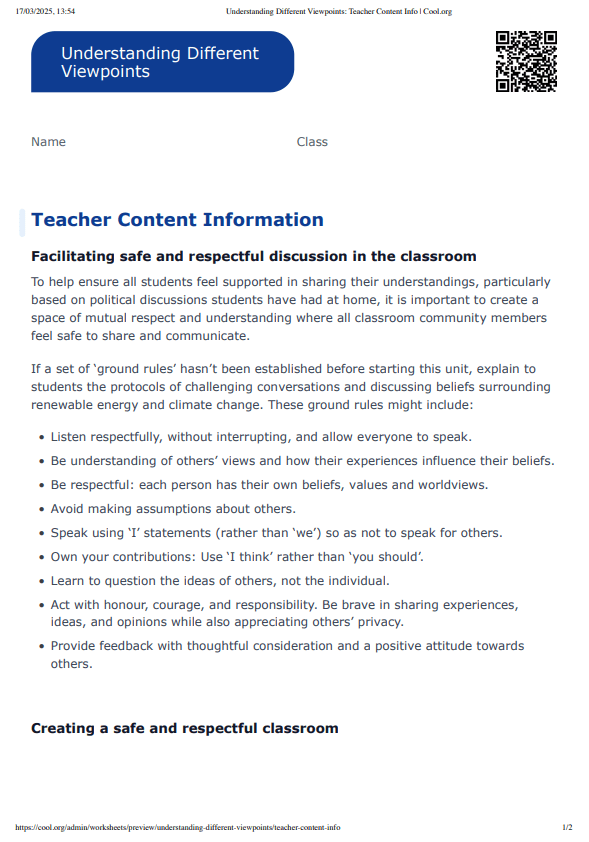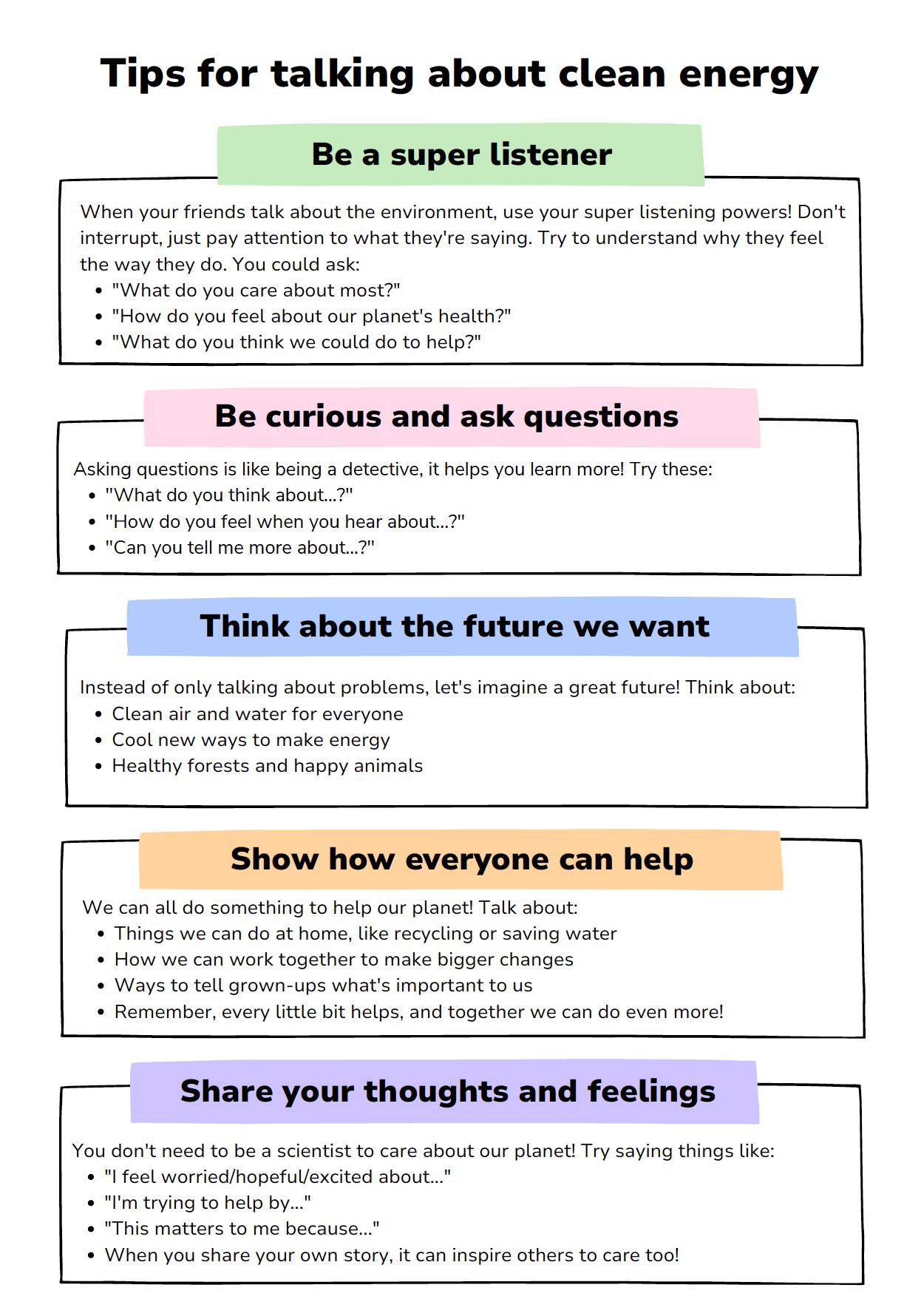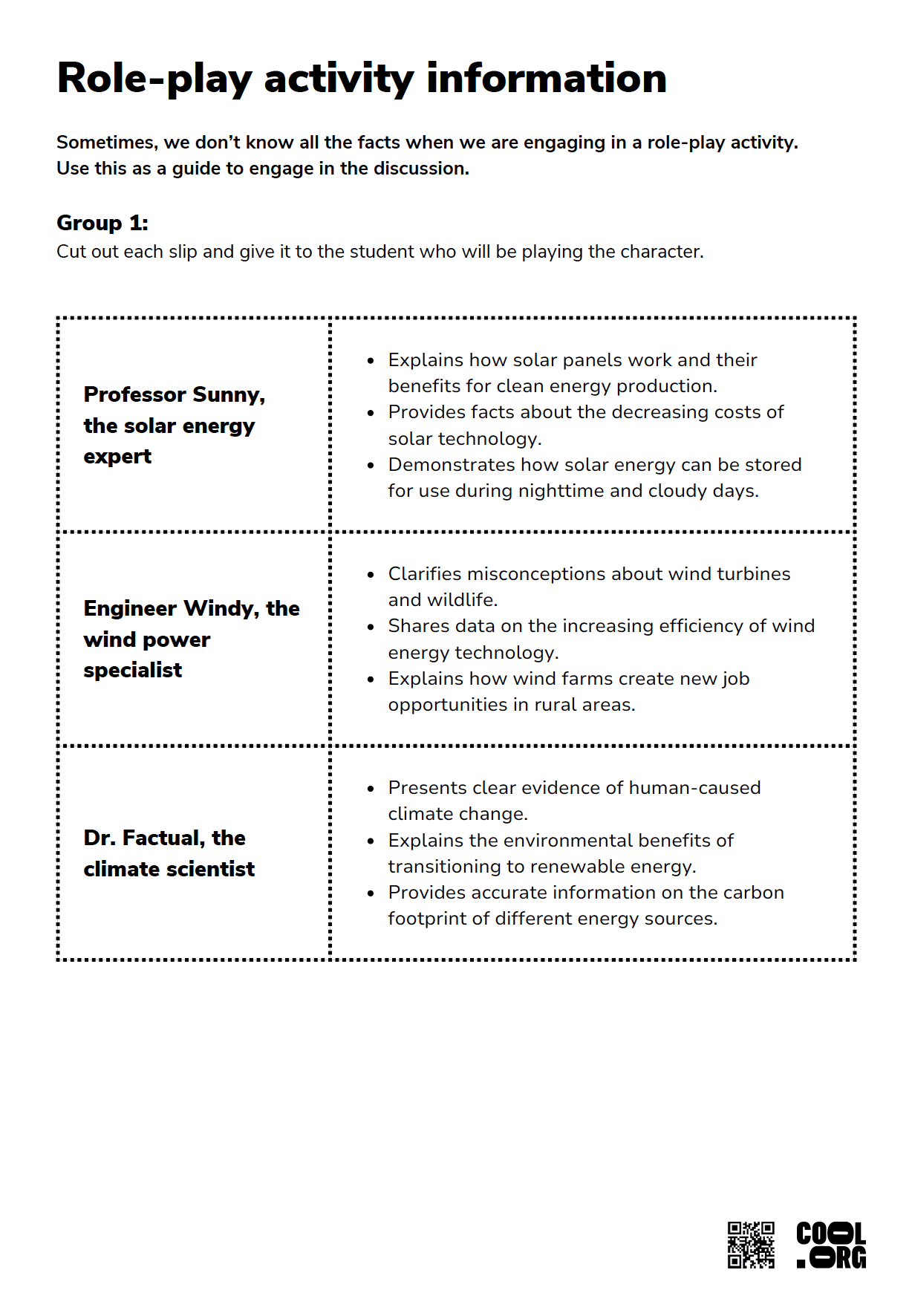Learning intentions
Students will:
- identify their own viewpoints, and where they come from, in relation to clean energy
- organise information and participate in democratic discussion through a scaffolded debate.
Success criteria
Students can:
- use conversation tips for conversing about the climate
- represent different stakeholders in the community.




